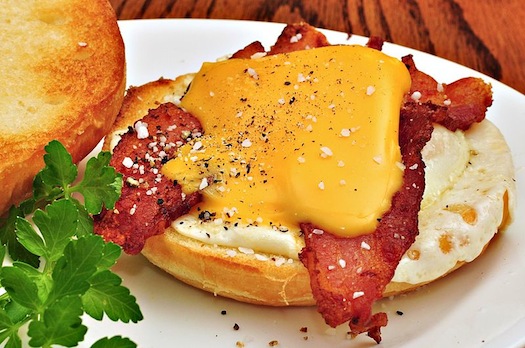

The desire to eat high-fat foods after drinking too much is rooted in human’s earliest, humblest beginnings, some scientists say.
“All mammals gravitate to eating the most energy-dense foods,” David Levitsky, professor of human ecology and nutritional sciences at Cornell University, says. “Fat is the most energy-dense food available.” It’s just that sober, you won’t usually give in to those cravings. But after a night of boozy indulgence, you lose such learned inhibitions as disciplined eating, Levitsky says.
Another explanation involves brain chemistry, specifically a brain chemical called galanin.
William Gruchow, a professor at the University of North Carolina at Greensboro, has studied and written about galanin and its effects on various neurotransmitters. “Galanin increases appetite for fats, and consumption of fat causes more galanin to be produced,” Gruchow said. “Alcohol intake also results in increased galanin production.”
Gruchow says he thinks galanin might be stimulated by triglycerides, which are released by fat and alcohol.
Triglycerides, converted calories stored in fat cells, are typically released by the body when energy is needed between meals, according to the Mayo Clinic’s website.
By consuming large quantities of high-fat foods and alcohol, you increase your triglycerides possibly stimulating galanin production. That, in turn, makes you crave that calorific Denny’s breakfast you’d never touch otherwise.
“The bottom line here is that alcohol intake increases one’s appetite for fat, and fat intake does the same. This is a double whammy for drinkers who eat fatty foods while drinking,” Gruchow says.
